In Dreams Begin Responsibilities - #1
by Steve Miles
published: 24 / 12 / 2020

intro
In his new column, European Sun's Steve Miles admits that he is ‘a punk through and through’ and verifies the point by citing in the first part of a two part article five out of the ten incomparable bands that changed his life.
A new regular column by Steve Miles. Welcome to the first of my new series of articles for Penny Black Music. In each issue I will be looking at an aspect of music that has had an effect on me and which seems worth being part of further conversation. We aim to be wide-ranging, deep-delving and debate-inspiring. We begin with Punk. In this, and in the next issue’s article, I will explore what punk means to me through ten songs that are worth anyone’s time to listen to. Here are the first five. Full disclosure: I’ve never owned a leather jacket with ‘Exploited’ on the back and I’ve never been to the ‘Rebellion’ festival. I sincerely doubt that anyone I know would describe me as a punk. And if I whispered it about myself on my death bed, it would serve no purpose, because using the word raises far more questions than it answers. And yet - if for no other reason than because my most impressionable years were mainly spent reading every word in the ‘NME’, making daily visits to the record shop to just look at the sleeves, and listening over and over again to the few records I could afford - I am a punk through and through. But what does that mean? Well, in these ten songs (five today and five more in the next issue) I will try to explain what punk means to me. That’s why there’s no ‘Teenage Kicks’, ‘In A Rut’, ‘Ambition’, or ‘No More Heroes’ - I dearly love these and other ‘classics’ of punk dearly, but I’m not going to celebrate them here. Instead, I’m going to try to explain why punk has had such a lasting influence on me that goes far beyond the thrill of three fizzing minutes of guitar, bass and drum. That said, the first is obvious: 1. ‘Boredom’ – The Buzzcocks (1977) You can’t talk about the universe without talking about the Big Bang. The ‘Spiral Scratch’ EP had it all: frantic music that sounds like the aural equivalent of that burst of adrenalin that pulses through your body when you get frightened; complete DIY independence (own label, Polaroid cover); the spirit being more important than the technique (recorded live and mostly in one take), and lyrics that are intelligent, provocative and witty in equal measure. ‘Boredom’ is the best of the four tracks, with a classic riff, an iconic, witty (and extraordinarily brave) two-note solo, and those exhilarating, brief breaks between the chorus and the verse. The drums rumble, the bass rambles, and the guitar sounds like someone is sawing through rust. And, of course, there’s swearing! This record is the moment that punk crawled out of the sea onto land. The DNA. And to take the metaphor further, Buzzcocks on this record evolved into two more advanced creatures: the punk pop purists of three exhilarating albums and a string of sublime singles under the same name (I could do a Top Ten of Buzzcocks with my eyes closed), and the art-punk heirs of Iggy’s Berlin albums, Magazine, who also made three intense, articulate albums and a string of sophisticated singles (Magazine’s ‘Peel Sessions’ record, by the way, is possibly the only record ever released without a single weak track). B’dum B’dum. 2. ‘Ice Cream Man’ (Live) – Jonathan Richman and the Modern Lovers (1977) As I looked for identity as a young man, punk helped provide it more than anything else. I was really angry about the injustice and inequality in the world: punk helped define that and explain it to me. I was confused by sex and relationships, terrified and captivated in equal measure by womanhood: punk helped me at least to realise that I wasn’t the only one, and allowed me to hear the voice of thoughtful women in a way I never could in real life. I was repelled and attracted in equal measure by the templates offered me for masculinity: punk gave me role models like Pete Shelley and Peter Perrett who showed me how to be manly in a more sensitive way, helping me bridge the chasm I felt between my love for football and my love of literature. As I fell asleep night after night with John Peel playing quietly by my pillow, my horizons broadened and my curiosity was piqued. Then, as now, the words and the emotions mattered most to me, but the music was essential too. Most punk records I liked either had extraordinary energy or explored sonic spaces that I hadn’t been to before. Both of those approaches excited me and stretched me. The best music talked directly to my heart. Often, to be fair, I fell for the sound of something and wanted so much for the meaning to be backed up by the words that I bought records which, in hindsight, had little or nothing to say. Later on, they ended up in Record and Tape Exchange. (A list of these bands is available on request.) The Modern Lovers were a huge influence of punk via their eponymous debut album released in August 1976, by which time they had long since disbanded. In fact, all but one of the songs on that masterpiece were recorded in 1972 and comprised one-third Velvets, one-third Stooges and one-third Richman’s unique sensibility. They channelled the two most important influences on punk, Lou Reed and Iggy Pop, and presented a lo-fi, high energy, attitude-laden music that, like the Ramones, whose debut also came out in 1976, set a precedent for the musical stylings of punk. But instead of anything from this album, I’ve picked a song Richman released in the following year, 1977 - The Year of Punk. I would have despised this record at the time if I’d heard it, but when I bought it second-hand a few years later, I played this song to everybody I could, just to see their reaction to the endless refrains that cause both Richman and his audience so much evident delight and the pure joy it contains. It was only years after that again that I finally understood how brave it had been of Richman to ignore the demand from his audience and his record company for his old ‘Modern Lovers ‘songs (you can hear the calls for ‘Roadrunner’ on the record), and to play a quiet, almost acoustic album of folk and fifties derived songs, some of which he’d composed to play to children in hospital. That determination to be himself was almost more punk than anything else, and while there are at least thirty or forty better songs by Richman than this, they mostly came into being because of his determination to make the music he wanted rather than what he thought others wanted. And in that, he avoided falling into the ditch that drowned so many punk careers. 3. ‘Time’ – Richard Hell and The Voidoids (1979) Time changes us. Some songs spoke to me more as a young man than they do now, because they encapsulated feelings that I have since grown out of a bit, and they have now fallen by the wayside. Others, including music I would have hated as a young man, I have grown into and now love. With hindsight, for example, while the Gang of Four created a perfect soundtrack for storming the barricades and were a great echo chamber if you were already left-leaning, they had little other than half-digested slogans to share. I still adore the exuberant drama of ‘Armalite Rifle’, but I now recognise that as an argument against the use of guns, it won’t get you very far in a debate. In contrast, while I always thought that Josef K were a good band, with every passing year their star seems to shine a little brighter, perhaps because there is still no other music that sounds like them in the world. "Only time can write a song that's really, really, real The best a man can say the way its playing feels And know he only knows as much as time to him reveals" Sometimes time reveals our heroes to be less heroic than we thought, and even though that doesn’t change the art they created at all, it does tend to infect our own responses to it. Thus, there’s no Sex Pistols here, and not even any PIL, despite the fact that the former started it all, and 'Metal Box' is still a paragon of true musical innovation and independence, because Lydon’s support for Trump currently takes the edge off my enjoyment of the two, the same way it just can’t help being more than a bit spoiled when you listen to the Smiths these days. In a similar vein, I picked ‘Time’ and not ‘Blank Generation’ (which is obviously more iconic, and frankly a gospel text of punk) in part because everyone knows ‘Blank Generation’ and partly because I recently found out something about its origin that has undermined it a bit – (I won’t share that because it’s a spoiler…) But this is in any case every bit as good. It’s on this list for two reasons: one, the wise and surprisingly thoughtful lyrics from Hell, his most mature ever, and two, Robert Quine. Punk’s manifesto eschewed the notion of expertise and made it clear that musical virtuosity was not an essential component of great records. And that was one of the most important lessons that punk shared, in my view. But many of the best punk musicians were very good musicians nonetheless, and their music was all the better for it. Richard Hell was definitely not one of them but he played, quite remarkably, with not one, but four of the best of them in Richard Lloyd, Tom Verlaine, Ivan Julian and the incomparable Robert Quine. Quine’s two solos here* are peerless examples of his style, which is the sonic embodiment of the phrase ‘good grief’. (*I’m writing here about the 1979 demo version on the compilation CD also called ‘Time,’ not the later more sanitised one on ‘Destiny Street’ from 1982 when Hell was too much of a junkie to contribute to the sessions and keep the focus on the music.) One of punk’s unwritten arguments, based on the hostility to virtuosity mentioned above, was the rejection of the guitar solo as a self-indulgent frippery. But many of my all-time favourite punk moments are guitar solos. I adore them not because they showcase the technical prowess of the player, but because they put into sound the emotions of the songs they inhabit, and speak as fluently (and sometimes even more directly) to my heart than the words themselves. Television’s ‘Little Johnny Jewel’ single, for example, could easily have been in this top ten and it’s not much more than a long solo. 4. ‘Me & The Devil Blues’ - Peter Laughner (1977) On the 21st June 1977, suffering from acute pancreatitis, and having moved back into his parents’ house after his divorce, Laughner stayed up late and played some of the songs he loved straight into a tape recorder. They ranged from covers of songs by Verlaine, Reed and Hell to ‘Summertime Blues’ and a Robert Johnson Song and his own compositions. He died the next day, aged just 24. In his short life he took an amazing musical trip from journeyman blues, via Reed, Dylan and the Stooges, to becoming the first true fan of New York new wave outside the city, a founding father of the US punk (via Cheetah Chrome) and the creative cornerstone of the whole post-punk genre through his part in the creation of Pere Ubu and Rocket from The Tombs. In short, he lived about five lives in one, and, to hear him on ’30 Seconds Over Tokyo’ (released as a single by Pere Ubu in 1975) and on ‘Ain’t It Fun’ by Rocket from The Tombs live in 1975 (recorded in the studio later by The Dead Boys in 1978), is to hear the unwritten template for both the rockier end of punk and the artiest end of post-punk. Laughner could play in many styles but always played with feeling. One of punk’s unwritten arguments, based on the hostility to virtuosity, was the dismissal of the idea of a guitar solo as a self-indulgent frippery, but I’m happy to admit that many of my all-time favourite punk moments are guitar solos. I love and admire them not because they showcase the technical prowess of the player, but because they put into sound the emotions of the songs they inhabit, and speak as fluently (and sometimes even more directly) to my heart than the words themselves. Try to imagine ‘Another Girl, Another Planet’ without John Perry’s lead and you’ll see what I mean. (Peter Perrett, by the way, should absolutely feature in any musical top ten you can imagine, and how he isn’t here is beyond me…). If you listen to Laughner’s astonishingly nuanced and varied solo on, say, his band Friction’s version of Richard Thompson’s ‘Calvary Cross’, recorded live in 1976, you can hear exactly what I mean. But this song is just Laughner and his acoustic guitar, playing a Robert Johnson song (he calls him ‘the Shakespeare of the blues’), and achieving the impossible of making it sound like it’s his own song. The virtuosity is invisible, the spirituality intense, the foreshadowing heart-breaking. 5.‘Skill’ – The Desperate Bicycles (1978) “This is a chord. This is another. This is a third. Now form a band.” Often incorrectly attributed to Mark Perry, but coming nonetheless from fanzine-land, this famous rallying cry was at the molten core of the punk planet. And no-one made that more real than the Desperate Bicycles. Forming in March 1977, ‘specifically for the purpose of recording and releasing a single on their own label’, they did exactly that. The story goes that they only had an amp and a bass, and used the studio’s instruments to make up the rest. It was recorded in mono and self-released, and quickly followed by a second single which ended with the call to arms, "It was easy, it was cheap, go and do it!" By the third single they had even gained a degree of proficiency and it is easier to listen to than the first singles, propelled by a train-in-a-tunnel drum beat, it makes the most of stereo sound and has a smashingly twangy bit of lead guitar at the end, as well as harmonising backing vocals, and lyrics that again sum up the ideas of the band. "Cycling, sex, cooking, writing/ Fishing, jumping, painting, writing/ The list is endless, you get ripped off/ Don’t let it put you off/ You don’t need skill, just the interest/ You don’t need skill, just the desire/ The interest and desire to do what you believe in/ Encouragement is really a faith believed in." I don’t know if it’s a coincidence that the lyric reminds me of a passage by Marx where he compares the freedom of man under communism to the limitations of capitalism (in ‘The German Ideology’) but I am sure that for The Desperate Bicycles, making your own music wasn’t just about not relying on others’ culture, it was about taking control of the means of production: a truly revolutionary act… Next time, in ‘In Dreams Begin Responsibilities’, we look at five other songs that sum up the spirit of punk. In the meantime, please feel free to contact me with comments and complaints at europeansunmusic@gmail.com or hear my own music at https://www.facebook.com/europeansunband or https://www.facebook.com/theshortstoriesmusic
Also In In Dreams Begins Responsibilities
In Dreams Begin Responsibilities (2024)
In Dreams Begin Responsibilities (2023)
In Dreams Begin Responsibilities (2023)
In Dreams Begin Responsibilities (2023)
Play in YouTube:-
Picture Gallery:-
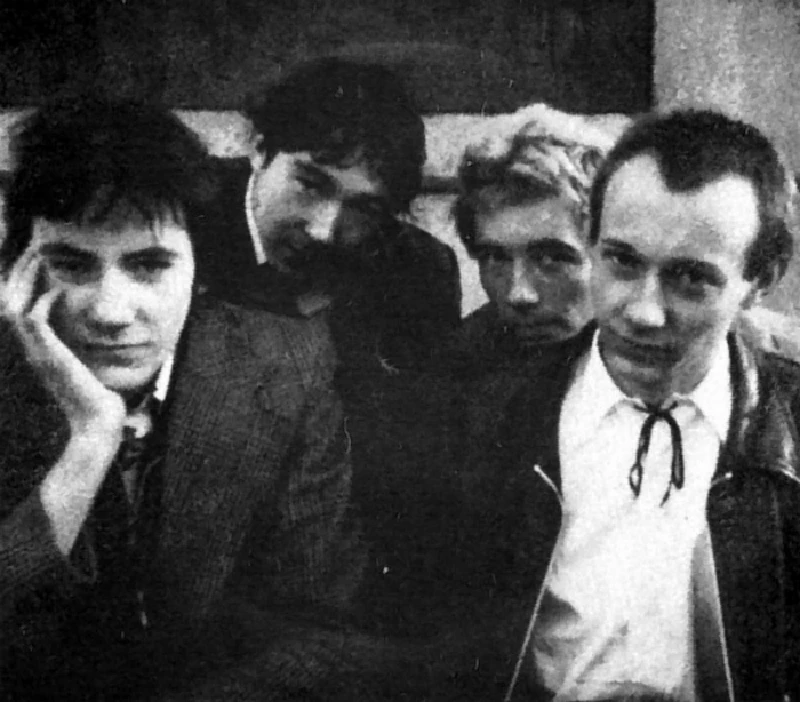
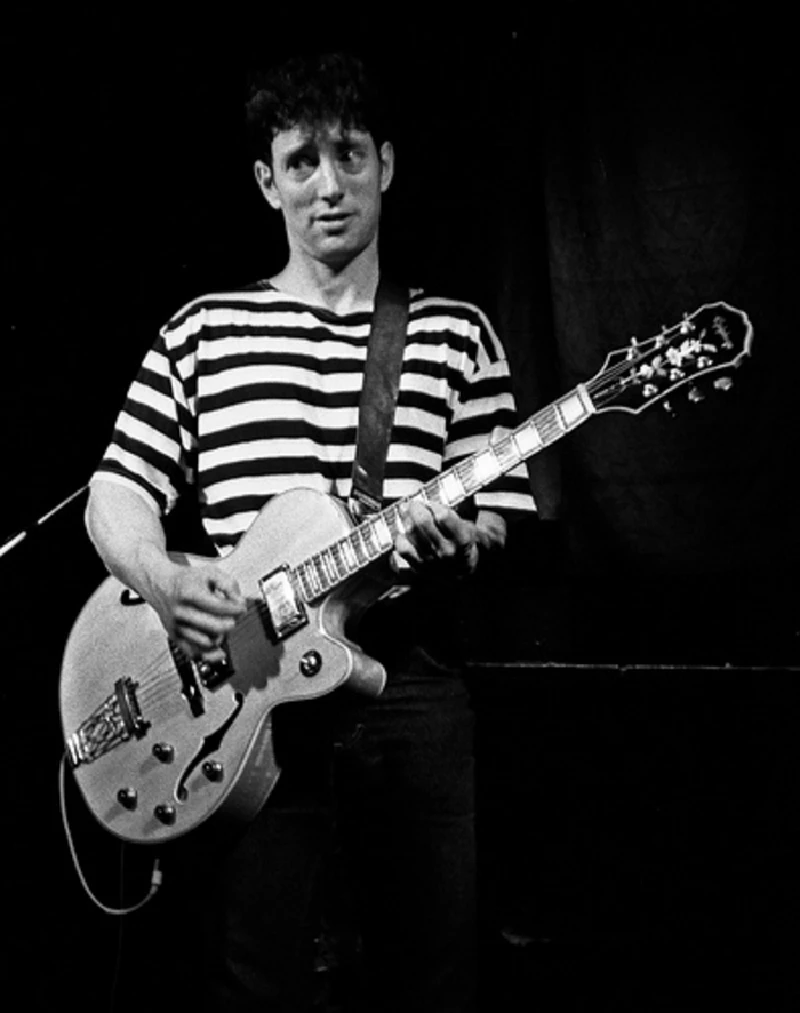
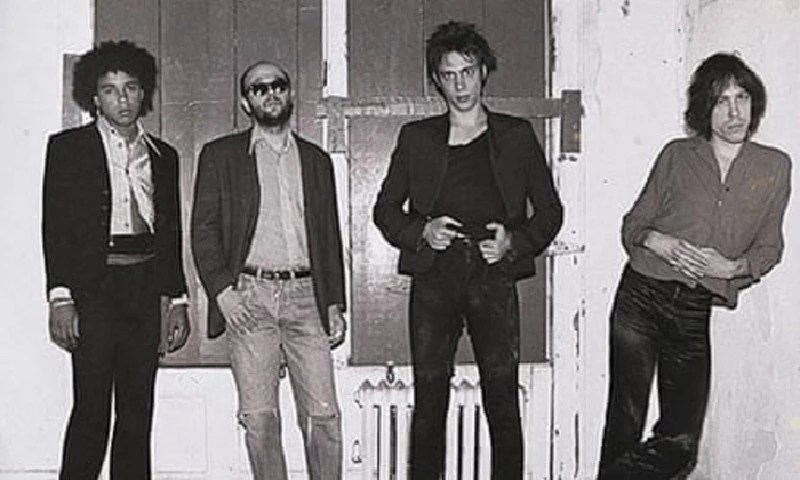
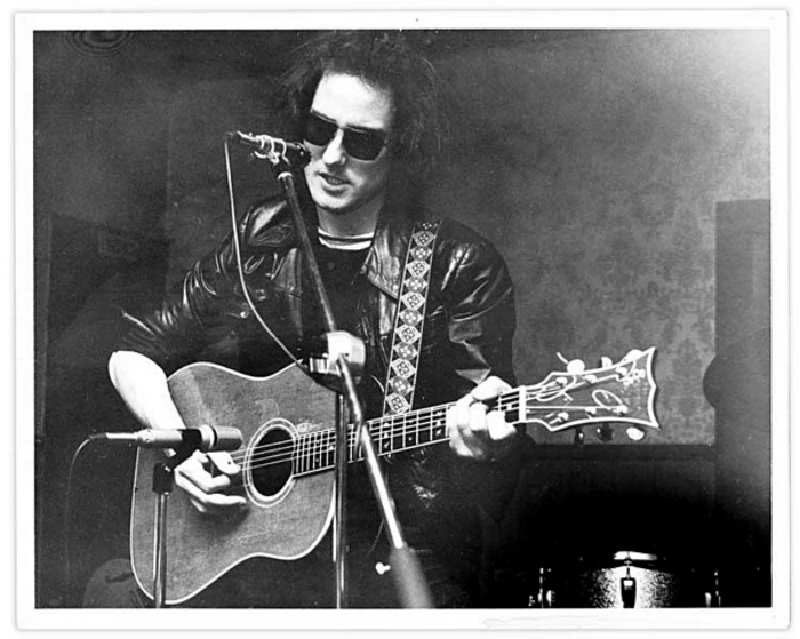
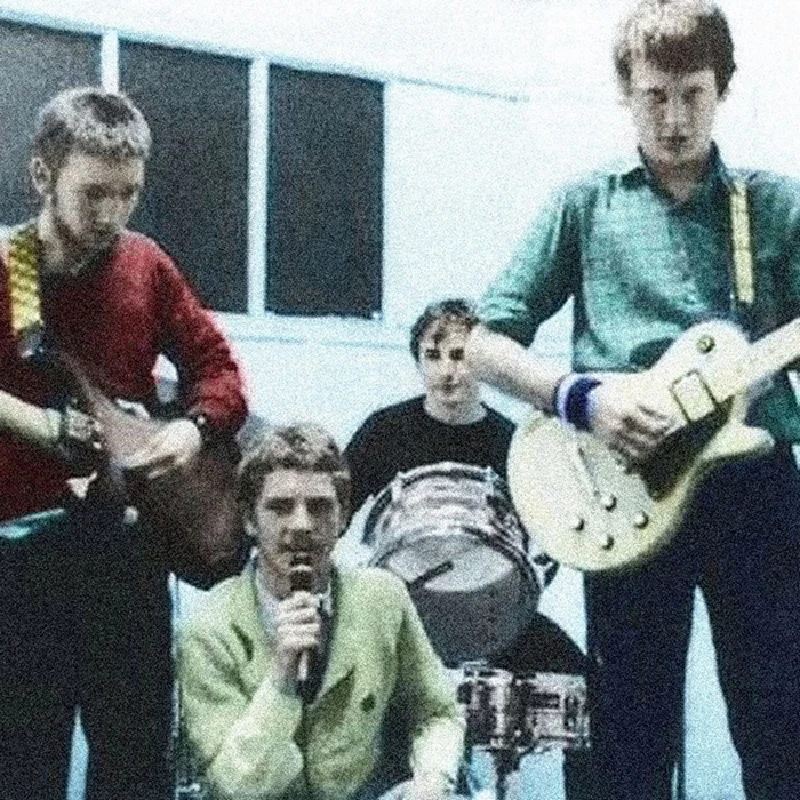
most viewed articles
current edition
Shrag - Huw Stephens Session 08.12.10 and Marc Riley Session 21.03.12Gary Numan - Berserker
Razorlight - Photoscapes
John Hassall - Photoscapes
Max Bianco and the BlueHearts - Troubadour, London, 29/3/2025
Primal Scream - Photoscapes
Roberta Flack - 1937 - 2025
Waeve - Club Academy, Manchester, 18/3/2025
previous editions
Heavenly - P.U.N.K. Girl EPManic Street Preachers - (Gig of a Lifetime) Millennium Stadium, Cardiff, December 1999
Boomtown Rats - Ten Songs That Made Me Love....
Beautiful South - Ten Songs That Made Me Love...
Barrie Barlow - Interview
Oasis - Oasis, Earl's Court, London, 1995
Trudie Myerscough-Harris - Interview
Dwina Gibb - Interview
Pixies - Ten Songs That Made Me Love...
Doris Brendel - Interview
most viewed reviews
Pennyblackmusic Regular Contributors
Adrian Janes
Amanda J. Window
Andrew Twambley
Anthony Dhanendran
Benjamin Howarth
Cila Warncke
Daniel Cressey
Darren Aston
Dastardly
Dave Goodwin
Denzil Watson
Dominic B. Simpson
Eoghan Lyng
Fiona Hutchings
Harry Sherriff
Helen Tipping
Jamie Rowland
John Clarkson
Julie Cruickshank
Kimberly Bright
Lisa Torem
Maarten Schiethart
